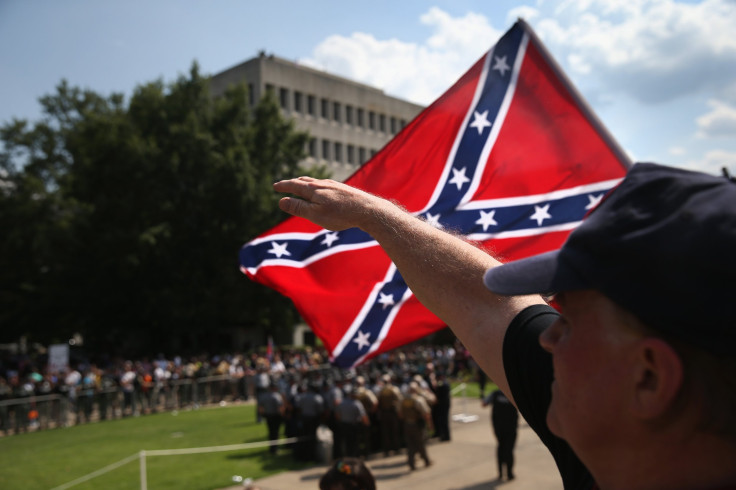Scientists Chart Regional Patterns Of Hate Across The US

People living in different areas of the United States hate for different reasons, based on a new breakdown of what drives hate groups throughout the country.
Researchers investigating the phenomenon on a county-by-county level found connections between hate and low community diversity; increased poverty; less education; and a more consistent population. But according to their study in the journal Annals of the American Association of Geographers, the factors contributed in varying degrees depending on the location.
In the central U.S., for example, socioeconomics are more important than population. But on the West Coast, ethnic diversity and poverty levels are key drivers for hate groups. The East Coast is affected most by population change — when there is more change, there are fewer hate groups.
“Our world is changing at an accelerating rate, causing both social and economic strain and fear of it,” the study says. “There is no one specific cause of hate, although, generally speaking, it typically stems from fear: fear of change, fear of marginalization, and fear of resource loss. These fears are different based on place.”
According to the researchers, the findings build off of previous studies that found these factors to fuel hate groups and makes them more specific to different regions of the country where there are different dynamics.
“Hate is a geographic problem,” senior study author Richard Medina said in a statement from the University of Utah. “The ways people hate are based on the cultures, histories, ethnicities and many other factors dependent on place and place perception.”
After mapping out hate groups in the U.S., the researchers looked at the economics, diversity, education and other circumstances of each county.
The team says the goal of the research is to get people thinking about hate as a more complex idea, given the current political climate.
“People hate for different reasons because U.S. regions have different situations and histories,” study co-author Emily Nicolosi said in the statement. “For example, the Northeast is a place of power that may be seen as elitist and well-educated. Is there still hate? Yes. Some of the reasons people hate there are different than in the South, where there’s a different history of the Confederacy, of discrimination, and so on.”
© Copyright IBTimes 2024. All rights reserved.





















